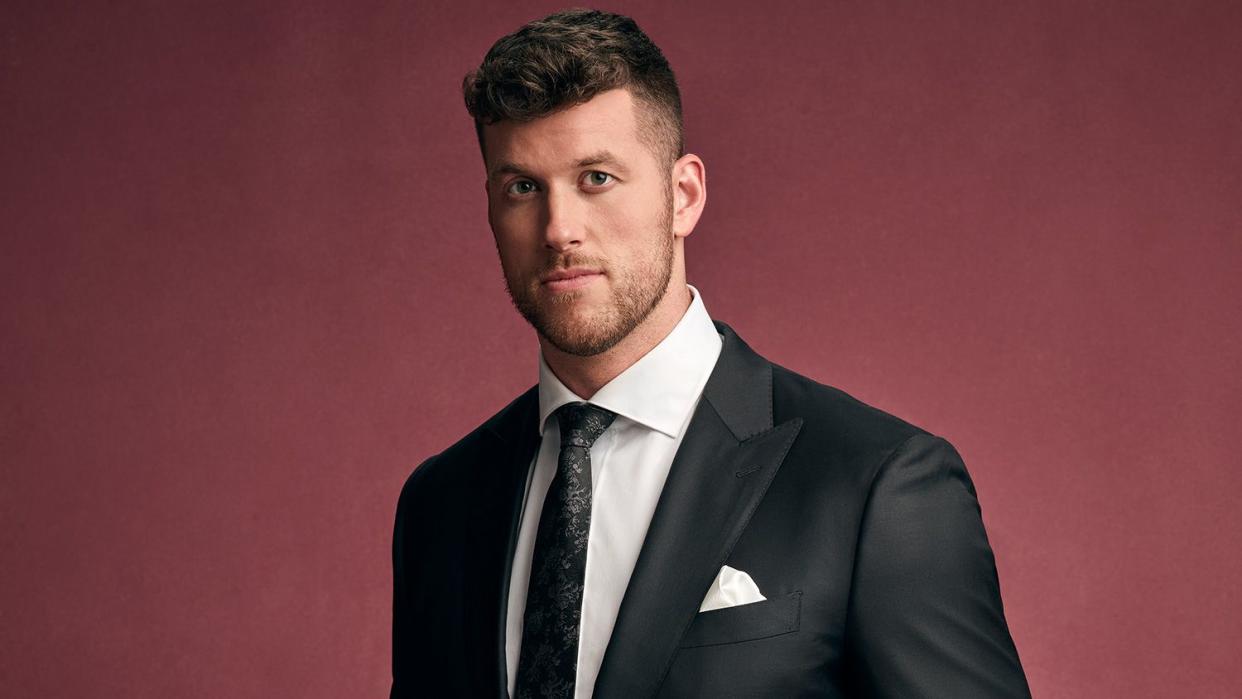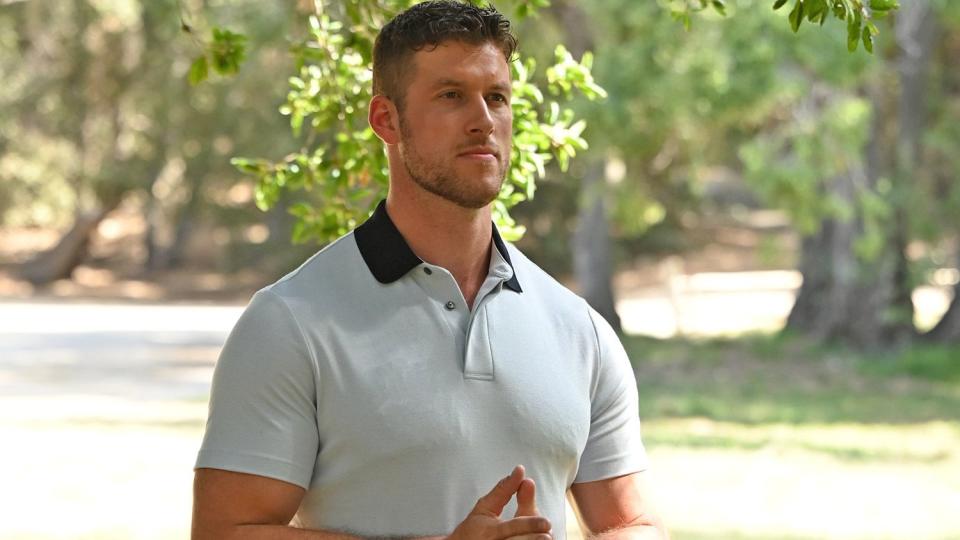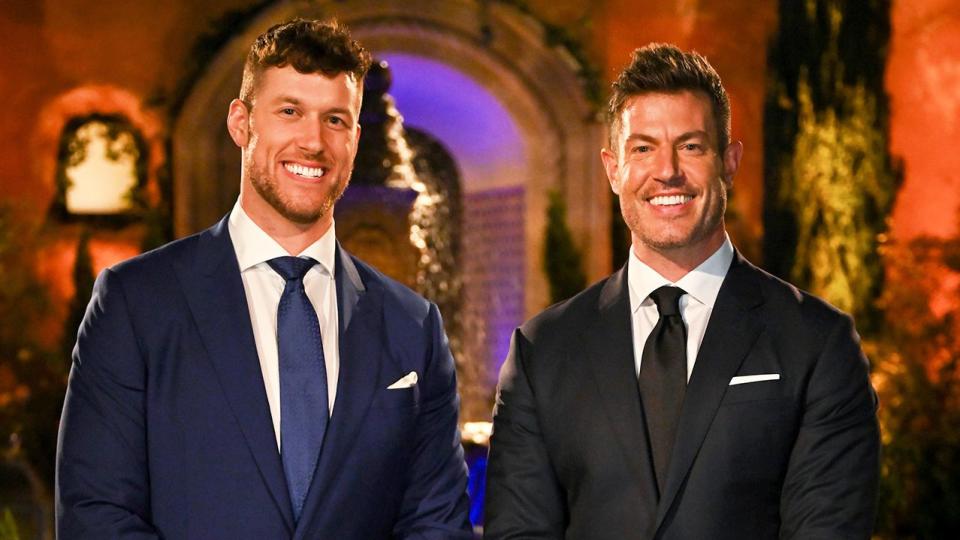Clayton Echard on His Body Dysmorphia and The Bachelor : 'I've Struggled with Feeling I'm Good Enough'

- Oops!Something went wrong.Please try again later.
- Oops!Something went wrong.Please try again later.
- Oops!Something went wrong.Please try again later.
ABC/Pamela Littky Clayton Echard
A former NFL player, a contestant on The Bachelorette and the star of The Bachelor, Clayton Echard is now using his fame to spread awareness about a mental health issue he has dealt with for most of his life: Body Dysmorphic Disorder (BDD).
The 29-year-old first started fixating on his image in the mirror when he was in seventh grade. "I would catch myself before brushing my teeth, staring at my stomach, pinching my sides, pinching my lower abs, and just feeling the fat there, the loose skin," Echard tells PEOPLE. "But then I realized that this was something that was becoming more prevalent day after day, and I would pinch my sides 50, 60 times throughout the day."
Echard says he didn't tell others about his fixation on his body. "I was really just too afraid to open up about it because I was told that men don't care about their bodies. That's a female issue. So I just decided to suppress it," he says.
It wasn't until college that Echard learned the terminology for his mental health struggle. Now having opened up and done research on Body Dysmorphic Disorder, Echard defines it for himself as "an extreme fixation on a part of your body that can lead to obsessive behaviors, and seeing that body part in a way that others may not."
He says his BDD has affected his personal relationships. "I think the tough part about it is for me, I've struggled with feeling that I'm good enough. And that's one more weight that continues to pile down on me, is if I look in the mirror and I don't like what I see, then I feel that someone else is going to look at me and not like what they see either," Echard says.
"And so it really plays into that feeling of not being good enough for somebody. And I think, well, okay, if I'm not visually what they're looking for already and that's an issue, then if I happen to not really be what they're looking for in another aspect, it's just going to become a pile-on effect."
In past relationships he says, "I've been in this state of fear that whoever I'm getting to know is going to end up seeing me for what I really am and thinking like, 'Hey, I don't want to be a part of this. I need someone who's more confident and loves themself for who they are.' And that's been a struggle for me to get to that point."

John Fleenor/ABC
Despite these fears, Echard put himself out there as a contestant on the 18th season of The Bachelorette. "I felt like on The Bachelorette side of things when I was on the show with all the other men, these guys were entrepreneurs, very successful individuals, good-looking guys, incredibly fit bodies. It was tough for me to be amongst them because I found myself — It felt like I had basically taken Instagram and put it in a room."
He continues, "And it was tough because I started to compare myself in that environment … I started to open up and tell them like, "Hey, I struggle with self-confidence." And the amount of support I got from them was incredible. I wish more people would've seen those conversations of support, that we would sit there in groups and just talk about our struggles and be open about it."

John Fleenor/ABC
While Echard says he has been vocal about his body dysmorphia since college, it was not until he appeared on The Bachelor franchise that he started discussing it on social media. "When I went on the show and accrued this following online, I realized I had this spotlight and platform where I could highlight whatever I wanted to. And I just felt that I didn't want to highlight me partying ... I wanted to have purpose with my platform," he says.
He also talked about BDD on The Bachelor. "I've had a lot of great feedback from individuals, saying that they feel less alone because I spoke about it, or I've changed their life for the better," he says." And so that's been a catalyst for me to really realize, hey, I want to dedicate, full-time hopefully, to going around the country, speaking on this, talking about it as much as possible to hopefully change or save as many lives as possible."
Echard teamed up with The Anxiety and Depression Association of America (ADAA) to continue to bring more awareness to the subject. "I think the biggest advice that I would give people is to seek resources," Echard says.
"From the research I've done and from me struggling with it myself, it's really hard to find that fix. And often I think, it's about better managing it. I haven't been able to fully eradicate it from my life. But what I've been able to do is go online and check out resources."
When asked whether he would do The Bachelorette and The Bachelor over again, Echard says he is not sure. "I've suffered a lot of loss. I've suffered a lot of self-inflicted wounds, and it's really, at points, it has caused me to be angry at myself and the world."
"But ultimately, I realize that I think there's a greater good for why I've went through what I've went through. And it's conversations like this that I'm having now that I think will make it all worth it. So ultimately, I'm thankful for being in the position that I'm in."

